Medical musings
Anaesthetist v Surgeon – Positive or Negative?
Today I am going to take a semi-serious look at the, sometimes fractious, relationship between anaesthetists and surgeons, one of the key professional partnerships in medicine. As a surgeon myself, specialising in Urological cancers, I have to say that some of my best friends are anaesthetists and their contribution to successful patient outcomes is vital.
Nonetheless, much is made of the supposed rivalry between these two specialisms. It is perhaps heightened by the fact that they are the key players in a surgical team and neither can work without the other. Both are used to working under pressure in often stressful situations, very likely to be Type A personalities and be obsessive about detail. Conflict at some level is to be expected.
Recently research into conflict situations between surgeons and anaesthetists was carried out by the Department of Anaesthesia at Vall d’Hebron Hospital in Barcelona. The objective was to identify the main situations that lead to conflict and their causes. After surveying all anaesthetist departments in Catalonia the key findings were:
- 60.7% of anaesthetists had had arguments with surgeons
- 33.3% averaged an argument a month
- 21.4% averaged one a week
The most frequent cause was exceedingly long surgical programmes. 95.8% of anaesthetists considered that surgeons try to operate elective cases in the Emergency operating theatre on the day when they are on call. The third most common cause of arguments was due to constant complaints by surgeons that the patient was not relaxed enough. The fourth was whether or not to go ahead and operate. Across the board conflict was found to be most common in emergency situations.
Given the source of the research the emphasis is understandable but does illustrate how vital it is to maintain great team work in the operating theatre, to let opinion be heard but not to let ego’s impact patient care.
Common medical stereotypes would picture the anaesthetist as the brains of the operating theatre with the surgeon as the brawn – hence the suggestion that Orthopaedic surgeons are “as strong as an ox and almost twice as clever”. The British Medical Journal did some research into this view in 2011, comparing the intelligence test scores and grip strength of 36 orthopaedic surgeons and 40 anaesthetists, both male, at three UK district hospitals. The results showed that both mean grip strength and intelligence test scores for the surgeons were higher than the anaesthetists who should now find new ways to make fun of their friends,
It is often said that if you want to find a good surgeon ask an anaesthetist. My feeling is that professional rivalry, points of view clearly expressed and sharing a common objective are what make for high performing surgical teams and that is what we all want – surgeon anaesthetist and patient.
Read this post... | Comments are off for this post.Robotic Surgery – Managing the costs of Modern Healthcare solutions
In August 2014 the Royal Derby hospital, where I have a practice, installed a Da Vinci Robotic surgery system. It’s considerable acquisition and running costs were funded by a generous private benefactor. There is no doubt that this is a marvel of modern medical technology. It allows a surgeon to carry out minimally invasive procedures with major benefits to the patient of significantly less pain, a shorter hospital stay and faster rehabilitation.
From the surgeon’s point of view it offers greater surgical precision, increased range of motion, improved dexterity and improved access when compared with traditional Laparoscopic (Keyhole) surgery. I have carried out procedures using this system myself and the results are impressive.
There is though a conflict that this kind of progress presents to our healthcare system. There is no doubt that this equipment can make a surgeon’s job more effective with the promise of better outcomes for patients. It is also much more ergonomic than traditional open or laparoscopic surgery thus resulting in less fatigue for the operating surgeon. When the capital cost of “the robot” along with its maintenance contract and the cost of disposable items required is factored in it is much more expensive than traditional surgery
More expensive technology means more expensive procedures for which money has to come from budgets already under intense pressure. It is difficult to envisage us retreating from this progress but equally we have to accept that the funding for the NHS is finite. This is a very good example of how, in my view, the cost of treatment is increasing at a rate far greater than the current model for the NHS can sustain.
Read this post... | Comments are off for this post.Surgeons & Dangerous Sports
As a keen snowboarder I should really question whether my chosen sport is ideal for someone whose hands, let alone the rest of me, are vital to my profession.
I could comfort myself with the US Sports injury figures for head injuries that show that cycling and football create 5 times the number of injuries. I can then ignore the uncomfortable fact that snowboarders suffer more wrist and ankle injuries than skiers. They are more likely to wreck their knees. Statistics from the University of Utah show that snowboarding injuries have risen from 3.37 per 1000 in 1991 to 6.97 in 2001. In my view this can be put down to a huge expansion in the number of snowboarders in that time and a proportionate increase in the number of beginners who are most likely to injure themselves in any sport. At least I am not at the bottom of a scrum getting my hands stood on.
Like most things in life these choices are a question of balance. The pressured professional lifestyle led by my colleagues and I demands that, from time to time, one has to call ‘time out’ and do something completely different to recharge the batteries. That may well be one of a number of dangerous sports. For me there is nothing quite like the exhilaration of swooping down a virgin ski run with the blue skies, clear alpine air and sense of being on top of the world. It is difficult to think about work when you need to plan your next turn, navigate the ski area and avoid those with more enthusiasm than skill.
Life without risk is life without contrast or colour and the experiences that make it worth living.
Read this post... | Comments are off for this post.Whistleblowing & the NHS
Whistleblowing is an issue in the NHS that has been much in the news of late. The editorial in The Times today (12/2/15) ’Duty of Complaint’ makes the striking point that timely and open reporting of failures or ‘near misses’ is taken as the norm in the aviation business and a vital means of ensuring that quality is maintained and tragic outcomes statistically insignificant.
I cannot help feeling that this type of error reporting would create an atmosphere of continual improvement in the health service and be a healthy change in what is in danger of becoming an unhealthy health service.I do not claim to have an answer but I do fear that the recommendations of Sir Robert Francis, supported by the Health minister Jeremy Hunt, are not the cure that is needed.
The article makes an excellent point that ‘whistleblowing’ is the wrong focus and that “reporting bad practice should be risk free, routine and expected.” The NHS is too valuable to all of us for it to tolerate the sort of errors that would be unacceptable in other safety and quality conscious walks of life.
Read this post... | Comments are off for this post.Avoiding Prostate Cancer
Anyone seeking advice on how best to avoid Prostate Cancer could be forgiven for being confused. Take your pick from ‘Ten portions of tomatoes a week’, ‘six cups of green tea a day’, soy beans, Brazil nuts and avoid dairy – just for starters. There will no doubt be even more bizarre recommendations based on narrow studies that, when looked at closely, reduce risk by minute percentages.
I am firmly of the opinion that focussing overmuch on specific elements of diet such as tomatoes is misleading. Far better to pursue the classic ‘healthy diet’, one which is low in processed meats and saturated fats but higher in fruits and vegetables. Bangladesh, which has just this style of diet, has one of the lowest incidences of Prostate Cancer.
Like many things in life it is a question of balance rather than excess, good or bad. This is as true for ones good health generally as for the avoidance of Prostate Cancer. Healthy weight, active lifestyle and balanced diet may sound a dull regime compared to stylish excess but in the long run it does mean that your body is better able to deal with whatever life throws at it.
Prostate Cancer is a disease that affects 41,000 men a year and kills10,000 of them. A healthy lifestyle is a good objective for all men but for those over 50 or with a family history of Prostate or other cancers a regular checkup with your GP is a wise precaution. Early diagnosis generally leads to much more positive outcomes.
Read this post... | Comments are off for this post.

